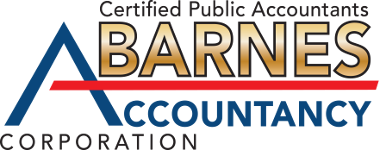Say it with me: four more weeks. Four more weeks until this crazy election cycle is behind us and we can all return to normal here in Southern California.
Except, well, if it isn’t. With the way that 2020 has been going, we might as well emotionally prepare for that eventuality and uncertain election results.
And however it goes, what seems clear is that there will be weeping and gnashing of teeth on one “side” or the other. Shoot, there’s weeping and gnashing of teeth NOW, so maybe we’re all as prepared as we need to be.
But while we’re on the topic of preparation, one of the results of 2020 has been a rise in multi-generational living for some of my ~ProfileMarketArea~ area tax and accounting clients. Whether it’s for economic or health reasons, when Mom and Dad or other, older members of the family move in and there are multiple generations “present” in the home, there are important things to keep in mind as it relates to maintaining your legal and financial footing.
Here’s what I mean…
~Profile.Displayname Barnes on How To Financially Handle Multiple Generations at Home
“Love only grows by sharing. You can only have more for yourself by giving it away to others.” – Brian Tracy
There used to be a time when Southern California families with elderly parents, young children (and everything in between) living together all in one house was much more common than it has been in recent years. So when 2020 came calling and all kinds of situations changed, many of our Barnes Accountancy Corporation tax client families have been unprepared for how to handle it — simply because “models” are much less plentiful.
This shift can feel like a blessing or a burden. And depending on your perspective, it can feel like a double-whammy.
Certainly, as with children, it’s always a better idea to focus on the benefits of more time with your parents, etc. … but yes, I’ve seen many times how this can put major strain on a family.
From what I’ve observed of adults thrust into the role of caring for their parents, the biggest struggle often comes from trying to keep their dual responsibilities segregated. They try to ensure that the needs of the aging parent don’t impact what’s going on in their children’s lives.
As an example, the adult children feel like they have to choose between making sure that Mom takes a walk for exercise, or helping a child with virtual learning. No matter what the adult parent chooses, he or she often feels like a failure at everything.
What you need to realize is that this process is not something you can keep separated in your life. You’ll do your family a great service by viewing it as an experience to be shared with everyone in the family, and maybe even with some members of the outside community (if medically possible).
If you find yourself in this situation, here are three practical tips I can offer:
1) Get the actual financial facts.
You may have avoided talking with your parents about finances in the past. Whether you were taught that those things are private or “it just never came up,” now is not the time for surprises. You need to know how your parents are doing financially and whether they’ve made any provisions in case they become ill or suffer a long-term disability.
2) Ensure the estate is set up correctly.
At this stage of your parent’s life it’s important to make sure that your parent’s legal house is in order. We can help make a recommendation to this end to someone good at this stuff in the Southern California area, if you need help.
But, no matter where you get it done, your parents absolutely need to have a financial power of attorney, advance health care directive (a health care power of attorney plus a living will), and a simple will. It may not be the best estate plan for your parents. It might not be proper Medicaid planning. However, it is the bare minimum you will need to help care for your parents.
3) Insure against the future.
Now is the time to examine long-term care insurance or assess whether savings will cover an extended nursing home stay, assisted living facility costs, or extended home care services. You may be tempted to begin to liquidate your holdings or to stop saving for your own benefit, in order to help pay for the cost of your parent’s care. Big mistake.
You may not be aware of this, but there aren’t nearly the same kind of government programs or lending scenarios that will help you pay for your kids, or their college, or fund your retirement — as there are programs to help support aging parents. And it’s vital that you continue to save for your retirement.
So take advantage of those areas where there *is* assistance available, so that you can keep sight of your own goals.
To your (extended) family’s lasting financial and emotional peace…
Warmly,
David Barnes
“CRISIS Action Plan” for my Southern California tax clients and friends:
1) Don’t marinate in other people’s panic. Be mindful of your social media consumption.
2) Continue to stay financially and logistically prepared for worsening situations.
3) Make sure you have some ready, liquid assets, if you are able. (I.e., cash in the bank, and in hand.)
4) Set aside plans for any big spending until the dust settles — but especially look out for your small business owner friends and vendors.

